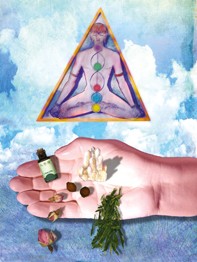Peer Reviewed
Feature Article Complementary medicine
Complementary and alternative therapies in liver and gut disorders
Abstract
Evidence for the effectiveness of herbal remedies in particular gastrointestinal orders is only available for a few of these therapies.
Key Points
- Toxicity and injury from herbal medications are well recorded.
- Herbal medications used inappropriately (for example, excessive doses and mixing herbal compounds without taking advice) can damage multiple organ systems.
- Anyone considering the use of a herbal remedy should be aware of the claims made for the product and its potential side effects.
- Patients should be monitored regularly to ensure that the use of a product is associated with benefit and not with harm.
- Alternative therapies tried by patients with chronic liver disease include dietary therapy and modification, homeopathic treatments and herbal medications, as well as exercise and meditation.
- Preparations that have been studied in trials and found to be candidates for liver disease therapy are Silybum marianum (milk thistle), Chinese herbal medicine CH-100, TJ-9 (sho-saiko-to, xiao-chai-hu-tang, minor bupleurum formula), phyllanthus extract and stronger neo-minophagen.
- Approval of a complementary medicine by the Therapeutic Goods Administration does not guarantee its efficacy in any particular disease state.
Purchase the PDF version of this article
Already a subscriber? Login here.

